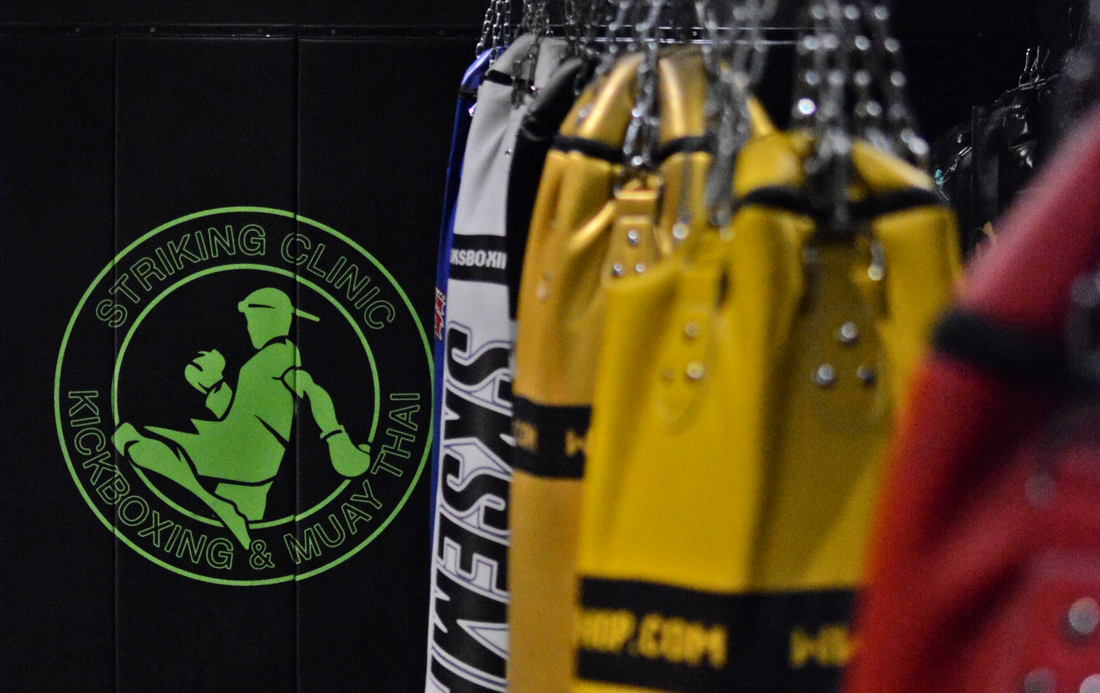
Skin Conditions in MMA: Causes and Treatment
Share
If you're an MMA fighter, you know how important it is to take care of your body. However, one aspect of your health that you may be overlooking is your skin. Skin conditions are common in MMA, and they can have a significant impact on your physical and mental health. In this article, we'll take a closer look at some of the most common skin conditions that MMA fighters should be mindful of.
One of the biggest concerns for MMA fighters is the risk of skin infections. The close contact nature of the sport means that fighters are at a higher risk of developing infections like ringworm, staph infections, and impetigo. These infections can be extremely painful and can keep you out of the ring for weeks or even months. That's why it's essential to take preventive measures like keeping your skin clean and dry, avoiding sharing equipment, and getting any cuts or scrapes treated promptly.
Another skin condition that MMA fighters should be aware of is acne mechanica, also known as "sports acne." This type of acne is caused by the friction and pressure of tight clothing and equipment, like headgear and gloves. MMA fighters are at a higher risk of developing this type of acne because of the amount of time they spend in close contact with equipment. If left untreated, acne mechanica can lead to scarring and hyperpigmentation, which can be difficult to treat.
Understanding Skin and Its Conditions
Skin is the largest organ in the human body, and it is an essential part of the body's immune system. It serves as a protective barrier against environmental factors and pathogens. The skin also helps regulate body temperature and plays a crucial role in sensory perception.
There are many skin conditions that can affect the skin's health and function, including chronic skin conditions like eczema and psoriasis. These conditions can cause discomfort, pain, and even psychological distress.
One of the most common skin conditions in mixed martial arts (MMA) is bacterial skin infections. Bacteria can enter the skin through cuts, scrapes, or other injuries, and cause infections like impetigo, folliculitis, and cellulitis. These infections can be painful and may require medical treatment.
It is crucial to maintain good hygiene practices to prevent bacterial skin infections. This includes washing your hands regularly, showering after training, and avoiding sharing towels or equipment with other fighters.
Other skin conditions that MMA fighters should be mindful of include ringworm and herpes simplex virus (HSV) infections. Ringworm is a fungal infection that can be spread through skin-to-skin contact or contact with contaminated surfaces. HSV infections can cause painful blisters or sores on the skin and are highly contagious.
In conclusion, understanding the skin and its conditions is essential for MMA fighters. Maintaining good hygiene practices and being aware of the signs and symptoms of skin infections can help prevent these conditions from affecting your health and performance in the ring.
Specific Skin Conditions and MMA
When it comes to MMA, skin infections are a common occurrence due to the close contact and physical nature of the sport. As an MMA fighter, it is important to be aware of the various skin conditions that can arise and take the necessary precautions to prevent them. Here are some of the most common skin conditions that MMA fighters should be mindful of:
Staph Infection and MMA
Staph infections are caused by a type of bacteria called Staphylococcus aureus, which can live on the skin and in the nose. In MMA, staph infections can be contracted through skin-to-skin contact or contact with contaminated surfaces. Symptoms of staph infections include redness, swelling, and pain at the site of the infection, as well as fever and fatigue. To prevent staph infections, it is important to keep your skin clean and avoid sharing towels, clothing, or equipment with others.
Ringworm and MMA
Ringworm is a fungal infection that can be contracted through skin-to-skin contact or contact with contaminated surfaces. Symptoms of ringworm include a circular rash with raised edges and a clear center. In MMA, ringworm can be particularly problematic as it can spread quickly among fighters. To prevent ringworm, it is important to keep your skin clean and dry, avoid sharing towels or clothing, and regularly disinfect equipment.
Impetigo and MMA
Impetigo is a bacterial skin infection that is most common in children, but can also affect adults. Symptoms of impetigo include red sores that quickly turn into blisters and then scab over. In MMA, impetigo can be contracted through skin-to-skin contact or contact with contaminated surfaces. To prevent impetigo, it is important to keep your skin clean and avoid sharing towels, clothing, or equipment with others.
Herpetic Lesions and MMA
Herpetic lesions, also known as cold sores or fever blisters, are caused by the herpes simplex virus and can cause painful, fluid-filled blisters on the lips and around the mouth. In MMA, herpetic lesions can be contracted through skin-to-skin contact or contact with contaminated surfaces. To prevent herpetic lesions, it is important to avoid close contact with others when you have an active outbreak, and to avoid sharing towels, clothing, or equipment with others.
Impact of Skin Conditions on MMA Fighters
MMA fighters are no strangers to skin conditions, and these conditions can have a significant impact on their performance, quality of life, and mental health. Skin conditions can cause pain, discomfort, and embarrassment, and in some cases, they can even lead to depression and anxiety.
One of the most common skin conditions in MMA is cellulitis, a bacterial infection that can cause redness, swelling, and tenderness. This condition can be painful and can make it difficult for fighters to move and perform at their best. It can also spread quickly, making it essential for fighters to seek treatment as soon as possible.
Another skin condition that can affect MMA fighters is MRSA, a bacterial infection that is resistant to many antibiotics. MRSA can be challenging to treat and can cause severe pain and discomfort. It can also lead to more serious health problems, such as sepsis, if left untreated.
Skin conditions can also have a significant impact on a fighter's mental health. Conditions like psoriasis and eczema can be visible and embarrassing, leading to feelings of self-consciousness and low self-esteem. These feelings can lead to depression and anxiety, which can further impact a fighter's performance and quality of life.
In addition to the physical and mental impact, skin conditions can also affect a fighter's overall quality of life. They can make it difficult to train and compete, and they can also lead to missed opportunities and lost income. It's essential for fighters to take care of their skin and seek treatment when necessary to avoid these negative impacts.
Overall, skin conditions are a significant concern for MMA fighters. They can cause pain, discomfort, and embarrassment, and they can also have a significant impact on mental health and quality of life. It's essential for fighters to take care of their skin and seek treatment when necessary to avoid these negative impacts.
Skin Conditions and Mental Health
Skin conditions can have a significant impact on mental health, causing distress and anxiety. This is especially relevant in MMA, where fighters are often required to compete with visible skin conditions. People living with skin conditions such as psoriasis and vitiligo can experience distress and be subject to rude or unwelcome comments from others. As such, skin conditions can affect mental health.
Research has shown that people with skin conditions are at increased risk of developing mental health disorders such as anxiety and depression. Inflammatory skin diseases such as psoriasis and atopic eczema are particularly associated with common mental disorders. The reasons for these associations are not yet clear, but it is thought that the psychological impact of living with a visible skin condition can contribute to mental health problems.
It is important for MMA fighters to be mindful of the impact of skin conditions on their mental health. Mindfulness and meditation techniques can be helpful in managing stress and anxiety related to skin conditions. Mindfulness-based cognitive therapy (MBCT) has been shown to be effective in reducing symptoms of depression and anxiety in people with psoriasis.
In addition to mindfulness and meditation techniques, it is important for MMA fighters to seek appropriate medical treatment for skin conditions. This can help to manage physical symptoms and reduce the psychological impact of living with a skin condition. Fighters should also be aware of the potential impact of skin conditions on their opponents and take appropriate precautions to prevent the spread of infectious skin conditions.
Overall, it is important for MMA fighters to be aware of the potential impact of skin conditions on their mental health and to take appropriate steps to manage any associated stress and anxiety. Mindfulness and meditation techniques, as well as seeking appropriate medical treatment, can be helpful in managing the psychological impact of skin conditions.
Prevention and Treatment of Skin Conditions
As an MMA fighter, you are at a higher risk of developing skin conditions due to the nature of the sport. However, there are steps you can take to prevent and treat these conditions.
Prevention
Prevention is key when it comes to skin conditions. Here are some tips to help you prevent skin conditions:
-
Keep your skin clean: Regularly wash your skin with mild soap and water to remove dirt and sweat that can clog your pores and cause skin irritation.
-
Practice good hand hygiene: Wash your hands frequently, especially before and after training, to prevent the spread of bacteria and viruses that can cause skin infections.
-
Use protective gear: Wear protective gear, such as headgear and gloves, to prevent cuts and scrapes that can lead to skin infections.
-
Avoid sharing personal items: Do not share towels, razors, or other personal items that can spread skin infections.
-
Be cautious in gyms: Use a towel to cover benches and equipment in the gym to prevent direct skin contact with surfaces that may be contaminated with bacteria and viruses.
Treatment
If you do develop a skin condition, early treatment is important to prevent it from getting worse. Here are some common treatments for skin conditions:
-
Topical medications: These are creams, ointments, and lotions that are applied directly to the skin to treat skin conditions such as eczema, psoriasis, and acne.
-
Oral medications: These are medications that are taken by mouth to treat skin conditions such as fungal infections and severe acne.
-
Antibiotics: These are medications that are used to treat bacterial skin infections such as impetigo and cellulitis.
-
Antifungal medications: These are medications that are used to treat fungal skin infections such as ringworm and athlete's foot.
-
Steroid injections: These are injections of steroids that are used to treat severe skin conditions such as psoriasis and eczema.
Overall, as an MMA fighter, it is important to be aware of the various skin conditions that can arise and take the necessary precautions to prevent them. By keeping your skin clean and avoiding sharing towels, clothing, or equipment with others, you can reduce your risk of contracting a skin infection and stay healthy both in and out of the ring.
